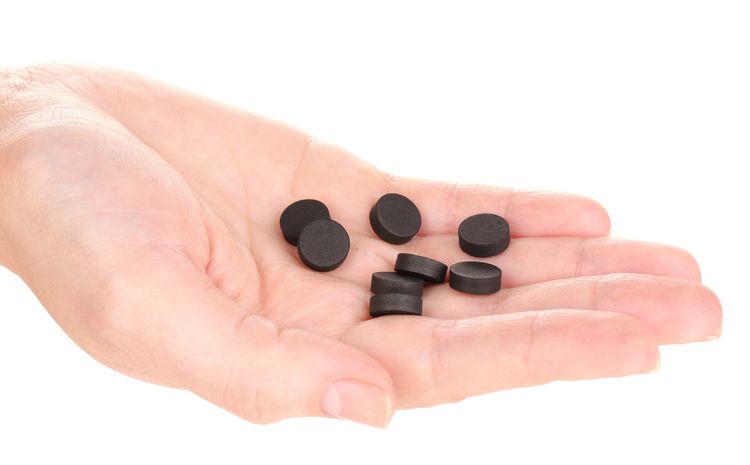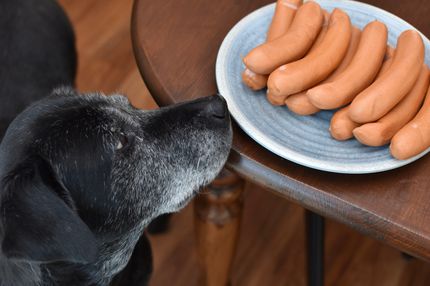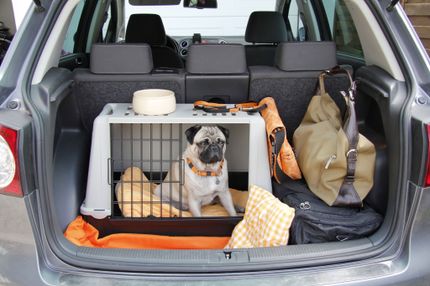If your four-legged friend once nibbled too much from the table or ate something suspicious in the park, charcoal tablets are often the first recommendation. But what is behind this "miracle pill"? Here we go into the effect, use, dosage and possible side effects of charcoal tablets for dogs.
Effect of charcoal tablets for dogs
Activated charcoal, the main ingredient of charcoal tablets, acts like a sponge that absorbs toxins and harmful substances in the stomach and intestines. As a result, they can help reduce or prevent symptoms of poisoning.
Areas of use
- Poisoning: Whether it's medications, chocolate or poisonous plants, charcoal tablets can reduce the absorption of toxins into the blood.
- Diarrhea
- Indigestion: When gas is present, activated charcoal can help bind excess fluids and gases.
Be careful when combining activated charcoal and sodium chloride (salt water)! Despite the common belief that dogs should be given activated charcoal in cases of salt poisoning (e.g., from excessive drinking of seawater or licking a salt lick), this is not advisable in cases of sodium chloride poisoning!
In such situations, the veterinary focus is instead on inducing vomiting.
Dosage of charcoal tablets in dogs.
It is essential to consult your veterinarian before administering charcoal tablets. Dosage depends on the size and weight of the dog, as well as the type of poisoning. In general, the sooner after ingestion of the poisonous substance, the more effective the effect of charcoal tablets. (In principle there is one rule - which should be prescribed by the doctor: 0.5 - 1g activated charcoal / kg. So for a dog with 8kg it should get 4 - 8g activated charcoal maximum.

Administration for dogs
How do I administer charcoal tablets to my dog now? If my dog weighs in at several tens of kilograms, it can quickly become several tablets. These are no longer as easy to smuggle into treats, as single tablets. Here also for example the syrup is suitable.
Giving charcoal tablets (mostly activated charcoal) to dogs can be considered challenging, especially if the dog is unwilling. Here are some instructions on how to administer charcoal tablets to dogs:
- Consultation with the veterinarian: first, ensure that the administration of activated charcoal is appropriate and safe in the dog's specific situation.
- Determining the proper dose: the correct dosage, which depends on the dog's weight and condition, is given by the veterinarian.
- Crushing the tablets: If tablets need to be given to dogs, they can be ground into a fine powder.
- Mixing with food or water: the powder can be mixed with a small amount of wet food or water to make a paste. This paste can be placed directly in the dog's mouth or spread on a treat.
- Use of a tablet feeder: If a paste is not to be made, a tablet feeder can be used. The tablet is placed in the end of the injector, the dog's mouth is carefully opened, and the tablet is placed as far back on the tongue as possible. The dog's mouth is then closed, and gently stroked across its throat to encourage swallowing.
- Praise of the dog: After the charcoal tablet is administered, the dog should be praised and possibly rewarded with a treat (assuming this is allowed by the veterinarian).
- Observation for side effects: Although activated charcoal is generally considered safe, there are some possible side effects. These include constipation, vomiting or dark stools. If there are signs of side effects or if an overdose is suspected, a veterinarian should be consulted immediately.
- Syrup: This can also help with high gram counts. Simply mix it under the feed.
Possible side effects
Even though charcoal tablets are generally safe for dogs, there are some possible side effects. These include constipation, vomiting, diarrhea or a dark discoloration of the stool.
Important Note
It is important to emphasize that this article is for educational purposes only and is not a substitute for medical advice. We are not physicians or veterinarians. Any decision regarding the health and treatment of the pet should be made in consultation with a qualified veterinarian. If you have any questions or concerns regarding the health of the pet, please consult a veterinarian.





















